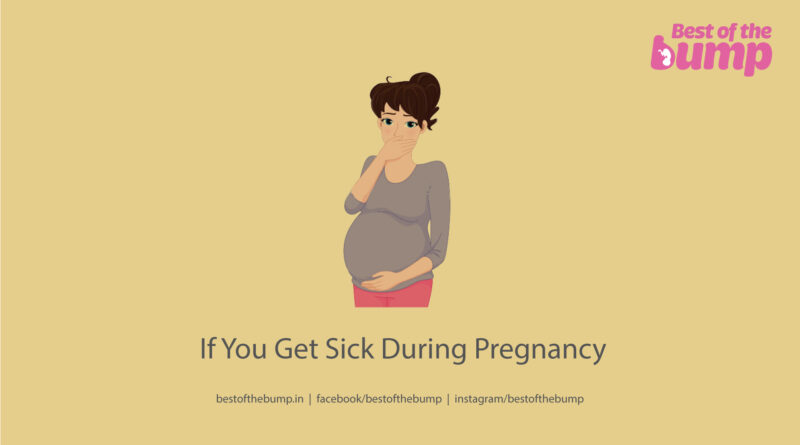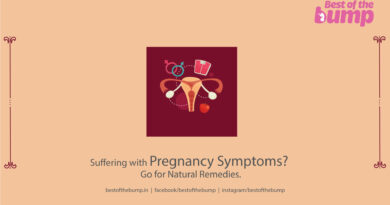If You Get Sick During Pregnancy
Sick During Pregnancy, experiencing sickness during pregnancy is a common phenomenon that affects approximately 80 percent of women. Morning sickness, characterized by nausea and vomiting, is a prevalent issue that occurs during the first trimester of pregnancy and may persist throughout the pregnancy. While it is generally considered a normal part of pregnancy, understanding its causes, triggers, and management can help pregnant women assess when medical attention is necessary and how to alleviate the discomfort effectively.
What is Morning Sickness?

- Sick During Pregnancy, Definition and Prevalence Morning sickness refers to the feeling of nausea and sometimes vomiting experienced by pregnant women. It is a widespread occurrence, affecting about 80 percent of pregnant women.
- Sick During Pregnancy, Timeline of Onset Morning sickness typically starts around the 6th week of the first trimester, but it can begin as early as the 4th week. The severity tends to worsen during the following months.
- Sick During Pregnancy, Duration and Variability Many women find relief from morning sickness around week 14, but some may continue to feel queasy occasionally. In some cases, symptoms may return periodically throughout the pregnancy, and a few women may experience sickness until delivery.
The Causes of Morning Sick During Pregnancy
- Hormonal Changes The exact cause of morning sickness is not fully understood, but it is believed to be related to hormonal fluctuations during pregnancy. Increased sensitivity to these changes may lead to feelings of nausea.
- Heightened Sense of Smell Many pregnant women experience a heightened sense of smell during pregnancy, which can trigger their gag reflex and contribute to morning sickness.
- Other Contributing Factors Various factors, such as stress, fatigue, and specific dietary habits, can also play a role in exacerbating morning sickness.
Recognizing Normal Morning Sickness vs. Complications
- Normalcy of Morning Sickness In most cases, morning sickness is a normal part of pregnancy and does not pose a threat to the mother or baby’s health.
- Signs of Concern However, there are instances when morning sickness becomes severe and may lead to complications, such as hyperemesis gravidarum, a condition characterized by excessive vomiting and dehydration. Recognizing the signs of concern is crucial to seeking timely medical attention.
Managing Morning Sickness: Tips and Remedies
- Dietary Adjustments
- Consuming Cold Foods: Foods like fruits and vegetables can be helpful as they are less likely to trigger nausea.
- Eating Bland Foods: Opting for plain and simple foods can be easier on the stomach.
- Small, Frequent Meals: Eating small meals throughout the day can help alleviate nausea and prevent overeating.
- Hydration Staying well-hydrated is essential during pregnancy, especially if vomiting occurs. Sipping water or clear fluids can help prevent dehydration.
- Vitamin B6 Supplements Taking vitamin B6 supplements has been found to reduce nausea during pregnancy. However, it’s essential to consult a healthcare provider before starting any supplementation.
- Ginger has natural anti-nausea properties and can be taken in various forms, such as ginger tea, ginger candies, or ginger capsules.
- Acupressure and Aromatherapy Some pregnant women find relief from morning sickness through acupressure wristbands and certain essential oils used in aromatherapy.
Coping with Morning Sickness Emotionally
- Seek Support Dealing with morning sickness can be emotionally taxing. Seeking support from a partner, family, or friends can provide comfort and understanding.
- Rest and Relaxation Getting adequate rest and practicing relaxation techniques can help manage stress, which can exacerbate morning sickness.
- Communicate with Healthcare Providers Open communication with healthcare providers is vital to ensure the well-being of both the mother and the baby. If morning sickness becomes severe or persistent, seeking medical advice is crucial.
Alternative Treatments and Medications

- Sick During Pregnancy, Prescription Medications In cases of severe morning sickness or hyperemesis gravidarum, healthcare providers may prescribe anti-nausea medications to provide relief.
- Sick During Pregnancy, Acupuncture has shown promise in reducing nausea and vomiting during pregnancy, but pregnant women should consult their healthcare providers before trying this alternative therapy.
- Homeopathic Remedies Some pregnant women find relief through homeopathic remedies for morning sickness, but evidence supporting their effectiveness is limited, and consultation with a healthcare provider is essential.
When to Consult a Healthcare Provider

- Sick During Pregnancy, Severe and Prolonged Symptoms If morning sickness becomes severe, leading to excessive vomiting, dehydration, weight loss, or a general inability to keep any food or liquids down, medical attention is necessary.
- Sick During Pregnancy, Concerns About Medications and Supplements Consult a healthcare provider if there are concerns about using medications or supplements to manage morning sickness.
- Sick During Pregnancy, Hyperemesis Gravidarum Hyperemesis gravidarum requires immediate medical attention to prevent complications.
Morning sickness is a common aspect of pregnancy that affects the majority of women. While it is usually not a cause for concern, understanding its causes and triggers can help pregnant women cope with the discomfort more effectively. By making dietary adjustments, staying hydrated, and considering remedies like ginger and vitamin B6 supplements, pregnant women can manage morning sickness and focus on the joy of pregnancy. In cases of severe symptoms or concerns, seeking medical advice is essential to ensure a healthy pregnancy and the well-being of both the mother and the baby. Remember that every pregnancy is unique, and what works for one woman may not work for another, so finding individualized strategies for managing morning sickness is key.
See this also.




